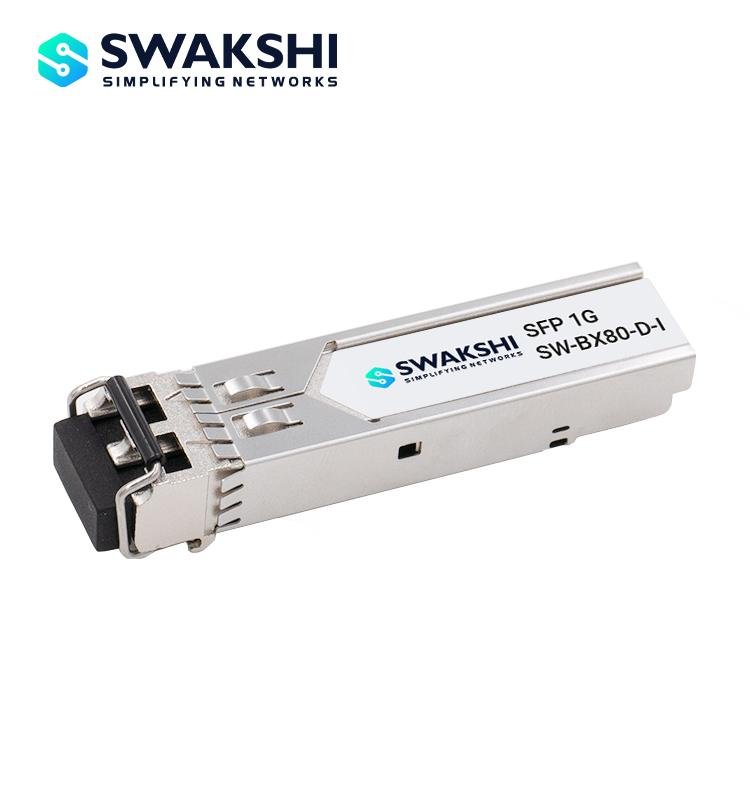In today's digitally-driven landscape, seamless connectivity and data transmission are crucial for businesses across all sectors. At the heart of this infrastructure are networking components that ensure high-speed, uninterrupted data flow. One such essential component is the Small Form-factor Pluggable (SFP) transceiver. As businesses seek reliable networking solutions, the role of a trusted SFP vendor becomes paramount.
What Is an SFP and Why It Matters
SFP, or Small Form-factor Pluggable, is a compact, hot-swappable optical transceiver used in data communication and telecommunications networks. SFP modules interface network devices such as switches, routers, and media converters with fiber optic or copper networking cables. These modules support a range of communication standards, enabling flexible deployment across a variety of transmission distances and speeds.
The adaptability of SFP modules makes them indispensable for network infrastructure. Whether expanding an existing system or setting up a new high-performance network, SFPs allow for scalable and cost-effective implementation.
The Strategic Importance of Choosing the Right SFP Vendor
Selecting a qualified and experienced SFP vendor is not merely a procurement decision—it is a strategic investment. A reliable vendor ensures compatibility, durability, and compliance with international standards. More importantly, they provide tailored support and after-sales service that can significantly reduce downtime and operational costs.
The SFP market offers a wide array of options, ranging from OEM (Original Equipment Manufacturer) transceivers to third-party alternatives. While OEM modules offer brand assurance, third-party SFP vendors often provide equally reliable products at a lower cost, along with excellent customer service and customization.
Key Qualities of a Reputable SFP Vendor
When evaluating an SFP vendor, several critical factors should be considered to ensure long-term performance and ROI:
1. Product Quality and Certification
Top-tier vendors provide transceivers that adhere to MSA (Multi-Source Agreement) standards. These standards ensure interoperability between networking equipment from different manufacturers. Look for SFP vendors whose products are ISO-certified and RoHS compliant.
2. Wide Product Range
A competent vendor offers a broad selection of SFP modules—ranging from standard 1G SFPs to advanced 10G, 25G, 40G, and 100G modules. They should also cater to various specifications including single-mode, multi-mode, BiDi, CWDM, DWDM, and more.
3. Testing and Compatibility
An ideal SFP vendor rigorously tests each module for compatibility with major brands like Cisco, Juniper, HP, and Dell. Compatibility assurance guarantees seamless performance and mitigates the risk of network failure.
4. Technical Support and Customization
A reliable vendor doesn't just supply hardware—they act as a long-term partner. Vendors offering customization, firmware encoding, and on-site support add value to your investment.
5. Lead Time and Scalability
Lead time and delivery capabilities are critical in managing network deployments. A well-equipped vendor maintains a healthy inventory, ensuring prompt delivery and the ability to scale with your needs.
OEM vs. Third-Party SFP Vendors
Many businesses debate between purchasing from OEMs or third-party SFP vendor. While OEMs provide a sense of security and seamless integration, third-party vendors have gained a reputation for delivering high-quality alternatives at competitive prices. Today’s advanced third-party SFPs are built to meet or exceed OEM standards, making them a viable choice for budget-conscious enterprises.
Third-party vendors often provide:
-
Comparable performance and warranty terms
-
Lower procurement costs
-
Customized firmware for enhanced compatibility
-
Access to technical consultation and post-purchase support
However, it is essential to verify the vendor’s credibility through reviews, certifications, and industry experience before transitioning from OEM to third-party solutions.
The Growing Market Demand for SFP Vendors
The rise in data center expansion, cloud adoption, and edge computing has significantly boosted the demand for reliable SFP vendor. Network operators, telecom companies, and enterprises alike require flexible, scalable transceiver solutions to support their bandwidth-intensive operations. This shift places SFP vendors at the core of networking infrastructure strategy.
Moreover, as 5G networks continue to roll out globally, the need for high-performance SFPs will only increase. This dynamic market growth underscores the importance of forming partnerships with trusted and forward-thinking SFP vendors.
Sustainability and Innovation in SFP Manufacturing
Another evolving consideration when choosing an SFP Vendor is sustainability. As global awareness of environmental responsibility grows, forward-looking vendors are incorporating eco-friendly manufacturing practices and energy-efficient designs into their products.
Innovation also plays a critical role. Leading vendors continuously invest in research and development to introduce new product lines—such as tunable transceivers, compact SFP28 modules, and advanced temperature-resistant designs—that meet the evolving demands of next-gen networks.
Conclusion: Partnering With the Right SFP Vendor
In summary, an SFP vendor is more than a component supplier—they are a critical enabler of your network's performance, scalability, and resilience. As enterprises increasingly rely on fast, stable data transmission, selecting a vendor that aligns with your operational needs and long-term goals is crucial.
Whether you are upgrading an existing network or building a new one, investing time in vetting the right SFP vendor will pay dividends in reliability, performance, and cost-efficiency. Look for vendors who offer high-quality products, proven compatibility, responsive support, and a commitment to innovation—traits that define not just a supplier, but a strategic partner in your digital journey.
